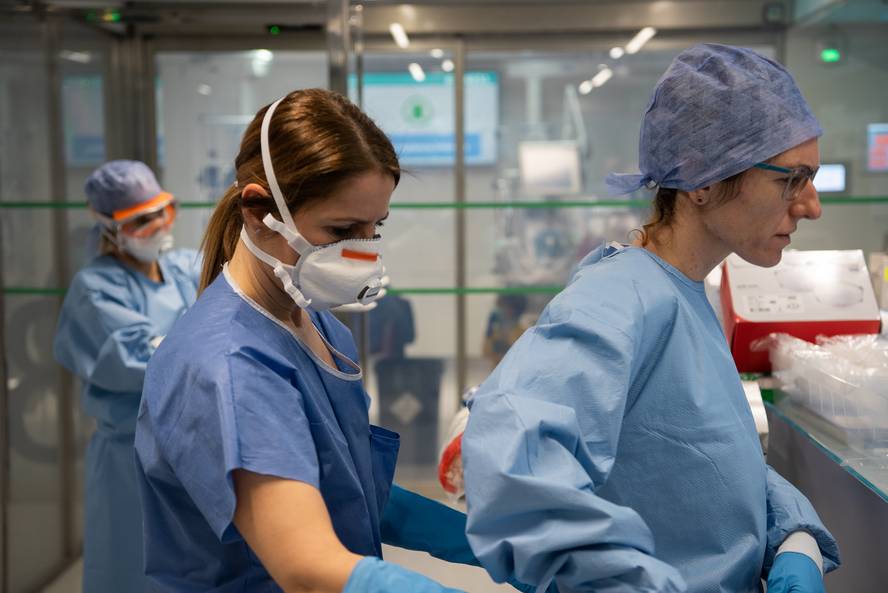2020/03/28

eu es fr en cat gl
Aparecerá un contenido traducido automáticamente. ¿Deseas continuar?
Un contenu traduit automatiquement apparaîtra. Voulez-vous continuer?
An automatically translated content item will be displayed. Do you want to continue?
Apareixerà un contingut traduït automàticament. Vols continuar?
Aparecerá un contido traducido automaticamente. ¿Desexas continuar?
Need to expand the focus
Text created by automatic translator Elia and has not been subsequently revised by translators.
Elia Elhuyar
Published in Berria on March 21, 2020

Hospital Clinic staff preparing to care for patients with covid-19. Ed. Francisco Àvia/Hospital Clínic/CC-BY-SA
The study of the numbers of deceased, hospitalized and contaminated who caused the new coronavirus in China concluded that it especially affected the elderly. This led to the most demanding measures being taken in order to protect them. However, in Italy, for example, the lethality — which died in relation to confirmed cases — is 34% between 70-80 years and 44% between 80-90. Placing the focus on the elderly, the incidence of the virus has gone unnoticed among the youngest. Now their conclusions have been made clear: In the U.S., the CDC disease control and prevention center has warned that 20% of those infected aged 20 to 44 have had to be hospitalized, 2-4% in intensive care units. The rest of the infected have been asymptomatic or, if they have become sick, have had mild or curable symptoms at home. And they have contributed to the spread of the virus, especially asymptomatic. Most experts acknowledge that this has also occurred in Europe. Another so much is happening with sex and gender. Once again reviewed the data of China, it can be observed that the new coronavirus has affected more men than women. According to experts, the causes of this difference are associated with both sex and gender: on the one hand, the immune system makes men more vulnerable to the new coronavirus and, on the other, smoking in China is more frequent among men. However, an international research group warns in the medical journal The Lancet that putting the focus on men is a distortion of reality. This group, called "Impact of gender and covid-19a", considers that it is necessary to analyze the incidence of gender as a whole, adopting timely measures. In fact, most health personnel are women (Hubein, for example, more than 90%). Therefore, they have a higher risk of infection and transmission of the virus. In addition, the fact that the care of residents and the division of paid work are also differentiated by gender makes women more vulnerable. The consequences of measures that limit movements are also more serious in women, so, according to the team of experts, to respond to the crisis, it is necessary to incorporate the gender perspective. In Euskal Herria, the Feminist Movement has created a technical table to address the crisis of care aggravated by covid-19. They ask the Basque Government, the Government of Navarre and the Basque School to establish a coordination desk for the custody. In addition to the political and union parties, it has been pointed out the need to have the participation of social agents: feminist movements, household employees and residences, associations of fathers and mothers and experts in the field of care, economy and medicine. However, it was already evident that to deal with the crisis it is essential to put the focus on people rather than on numbers. We are still in time to open the focus and respond better to the issue.